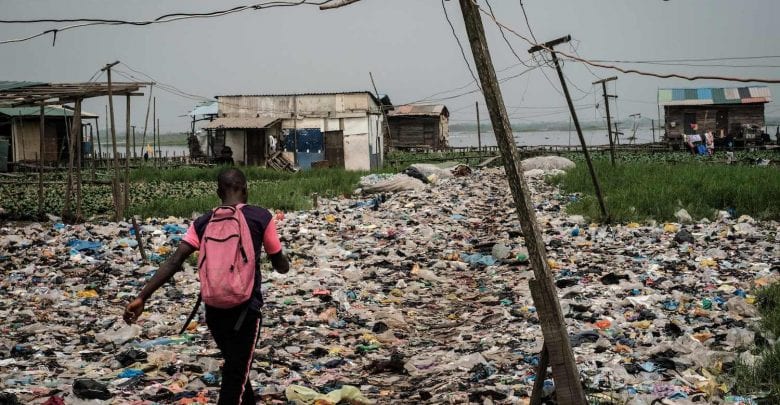
In a few hours, all would have been set for the president of Nigeria, Muhammadu Buhari, to address the nation on the next step necessary to contain the spread of the Coronavirus pandemic in the country.
Two things are most likely to happen – either an extension of the total lockdown in Lagos, Ogun and Federal Capital Territory (FCT), Abuja or a relaxation of the lockdown in the three locations where all activities have been grounded in the last couple of weeks.
Like most countries in the world, Nigeria is tirelessly battling the Coronavirus pandemic which was first recorded on February 28 after an Italian came visiting. While the index patient had long recovered, the country now has over 1000 cases, barely a month after.
As of Sunday morning, the agency saddled with the responsibility of updating the public on the deadly virus development, Nigeria Centre for Disease Control (NCDC) noted that the country now has the total number of 1182 confirmed cases with Lagos maintaining its position as the epicentre for the outbreak. Of these, 222 infected people have recovered and have been discharged while the death toll is 35.
A breakdown of all the cases shows that Lagos state has so far reported 689 cases, followed by FCT-138, Kano-77, Ogun-35, Osun-32, Gombe-30, Katsina-30, Borno-30, Edo-22, Oyo-18, Kwara-11, Akwa Ibom-11, Bauchi-11, Kaduna-10, Ekiti-8, Ondo-4, Delta-6, Rivers-3, Jigawa-2, Enugu-2, Niger-2, Abia-2, Zamfara-2, Sokoto-2 while, Benue, Anambra, Adamawa, Plateau, and Imo have one case each.
Some have argued that it took a long time before the Nigerian government took the virus seriously until it became a bombshell. Really, the government did not take proactive steps against the menace until mid-March when the president took the first drastic measure which was to place a travel ban on 13 high-risk COVID-19 countries from March 21. The directive was given on Wednesday, March 18 and it restricted nationals of China, Italy, Iran, South Korea, Spain, Japan, France, Germany, Norway, the United States of America, the United Kingdom, the Netherlands and Switzerland from travelling to Nigeria. This was later followed by the addition of Sweden and Austria bringing the list to 15 counties.
The government, particularly Lagos thereafter, on March 19, banned public gatherings of more than 50 people, including worship centres, schools, public bars and event centres. It later announced a downward review of the restriction to 20 people and commenced wholesale enforcement.
With an average of 21 million people, a lot of Lagosians did not comply with the public health directives, preferring instead to ignore the pandemic and continue with normal activities. Like Lagos, violators were also rampant in other states of the country.
Four weeks ago when the government realised that it was becoming unbearable, President Muhammadu Buhari ordered a two-week lockdown on March 29 when the country had only 111 cases. Two weeks after, he extended it when the cases increased to 318 and today, there are over 1000 cases amidst lockdown. To every sane individual, one can easily tell that relaxing the lockdown will pose a great danger and the citizens may not recover from it anytime soon.
The Nigeria Governors’ Forum asked Mr Buhari to partially relax the order, but who will bear the consequences?
In a letter signed by the chairman of the Nigerian Governors’ Forum (NGF), Governor Kayode Fayemi of Ekiti state, they requested for “inter-state lockdown, excluding movement of essential supplies – food, beverages, medical and pharmaceutical, petroleum supplies and agricultural products; internal free movement but with restrictions on large gatherings and assemblies; overnight curfews; lockdown of flights; and compulsory use of face masks/coverings in public.”
While their demands are not wrong, the demands are not totally right. The governors have in the past endangered lives of Nigerians all in the name of religion and that was evident when some of them ordered partial or absolute relaxation of weeks-long restriction of non-essential movements by residents in celebration of Easter. Yes, Nigerians have struggled with economic downturn since the pronouncement of the lockdown, but relaxing it could spell doom for the nation’s containment efforts against the pandemic.
Many more persons will be infected and would be made to suffer because we have few testing laboratories and decrepit medical facilities to manage infected persons, let alone 200 million population.
Rather than call for a relaxation of lockdown, we should better demand accountability and how best palliatives would get to grassroots most especially widows and the old which will be better addressed in POLITICS NIGERIA next analysis. More so, people may have become their own vigilantes, due to the high level of crime but with adequate palliatives and protection from security agencies, we shall conquer.
